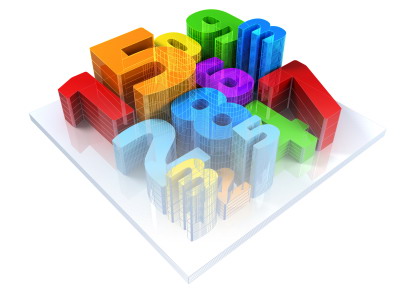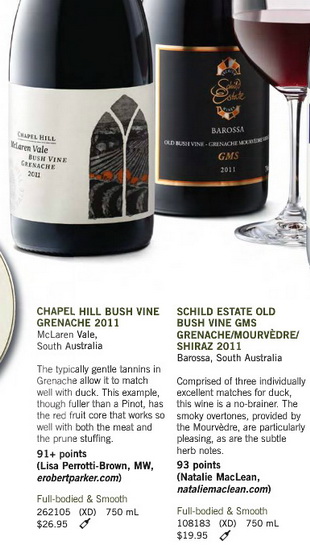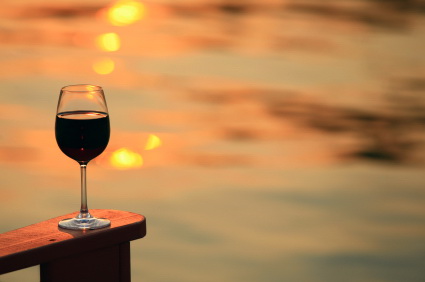 Continued from Part 1 of Wine Ratings
Continued from Part 1 of Wine Ratings
In 2001, Robinson started using a 20-point scale in response, she told me in an interview, to her readers’ request for scores. But only on her web site: her books are “point-free zones” as is her Financial Times column.
“The 100-point scores don’t mean much to us in Europe,” she observes. “Points will never be as emotive on this side of the Atlantic. Traditionally, if scores were used here at all, it was simply to achieve consensus on a tasting panel.”
She also believes that the most useful assessment of wine comes from a single palate ra ther than a panel, which drags distinctive wines into the “innocuous middle ground of communal assent.”
ther than a panel, which drags distinctive wines into the “innocuous middle ground of communal assent.”
However, scoring wines was “so inimical to traditional British wine lovers that when in 1985 Hugh Johnson was sent proofs of Parker’s first book on Bordeaux, he thought [the ratings] were printer’s marks.”
Johnson himself refuses to rate wines at all. “It’s a very useful shortcut for people who don’t want to make up their own minds or become involved, or even bother to read tasting notes,” he writes.
“The idea, that you can score quality is “fundamentally strange… I’ve never seen it tried on works of art.”
Besides, he points out, great wines “never end in an exclamation mark… they always leave questions unanswered. They tease you.
Short wines just say what they have to say and shut up, but all great wines stay with you. They keep asking you to come back, try me again, see what’s happening to me.”
The French find rating wines odd. As Adam Gopnik writes in The New Yorker: “A man who makes love to fifty-some women and then publishes a list in which each one gets a numerical grade, would not be called a lady’s man. He would be called a cad.
And that, more or less, is how a good many Frenchmen think of Parker: they don’t doubt his credentials; they question his character. A real man likes moles and frailties; a real man marries his wine, as he marries his wife, and sees her through the thin spots.”
Can critics even quantify something so elusive, ethereal and subjective as wine? Many wine lovers believe that the numeric system lends a spurious air of scientific accuracy to what is simply someone’s opinion.
After all, an emotional response can’t really be captured mathematically. The problem with scores, Robinson observes, is that there is no absolute objective truth when it comes to wine.
The easily understood shorthand of scores is actually quite difficult to pin down. Is an 85 good, very good or great? Is there really a difference between wines rated 91 and 92?
 Even good critics have their off days, blind spots, inconsistencies, prejudices and palate differences.
Even good critics have their off days, blind spots, inconsistencies, prejudices and palate differences.
To compensate for this and for the fact that wine changes and evolves over time, some critics (like Parker) re-taste wines every few years to see if the rating should be changed.
Parker points out that his scores rarely change by more than a couple of points, if at all.
Language, a more descriptive tool than numbers, has its inadequacies too: is brilliant better than outstanding? Is zesty better than refreshing?
At her first formal tasting, Robinson recalls a gathering of writers, including Hugh Johnson.
“The most extraordinary thing was that they all used contradictory expressions and yet acted as though they were in complete accord.”
She felt reassured that “wine appreciation is an entirely subjective process.”
I didn’t score wines for the first five years I wrote about them.
However, like Robinson and others, I eventually responded to readers who wanted them and have always published my tasting process and scoring system on my site.
The reason?
Many people buy their wine as they do their toothpaste: they want to make a quick decision, but a good one (or at least, a safe one).
A good score may give novice drinkers the confidence to make that precipitous leap from bladder-box swill to bottled poetry.
So I’m conflicted: while I agree that the essence of wine can never be trapped in a number, I do want as many people as possible to experience the pleasure of wine. If that means using a tool they can relate to, so be it.
Points don’t represent the essence of the wine itself, but rather your opinion of it.
In a bolded disclaimer on the cover of the Advocate, Parker himself acknowledges: “There can never be any substitute for your own palate.”
Then again, his success is built on the fact that most wine buyers don’t rely on just their own palates. Those who mindlessly follow his recommendations, replacing their own judgment with his are dubbed “Parker sheep.”
Winemakers who craft their wines to get high scores are said to “Parkerize” them. They make their wines denser, darker and more alcoholic to cater to his apparent preference for “fruit bombs.”
Whatever your view on wine and the role of wine writers, there’s little doubt that both topics matter a great deal to an increasing number of people.
Ratings, in particular, are becoming the main criteria wine lovers use to buy wines. As much as I dislike personal mudslinging, I actually find it reassuring that there’s so much heat in this debate: it shows that many people care enough about wine to duke it out verbally.
If we keep our passion for wine—whether it’s expressed in numbers, words or just sighs of pleasure—something vital still lives in the glass and on the page.








